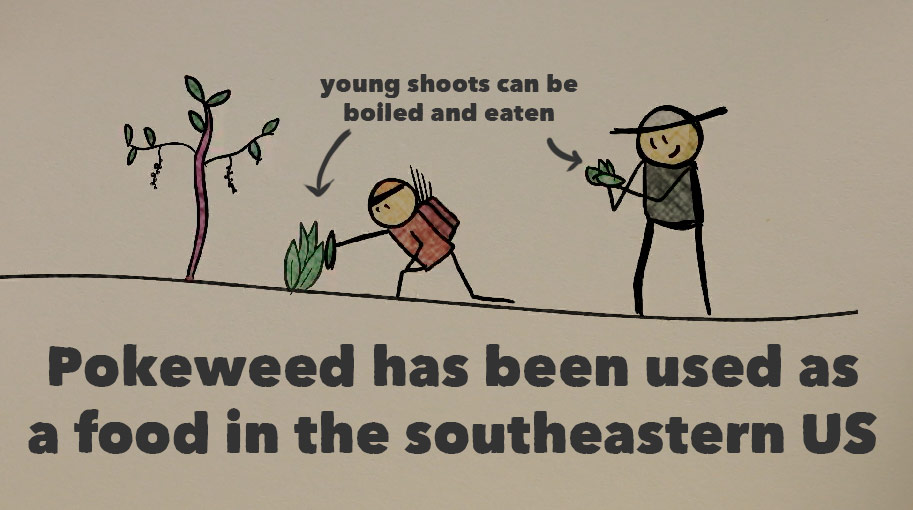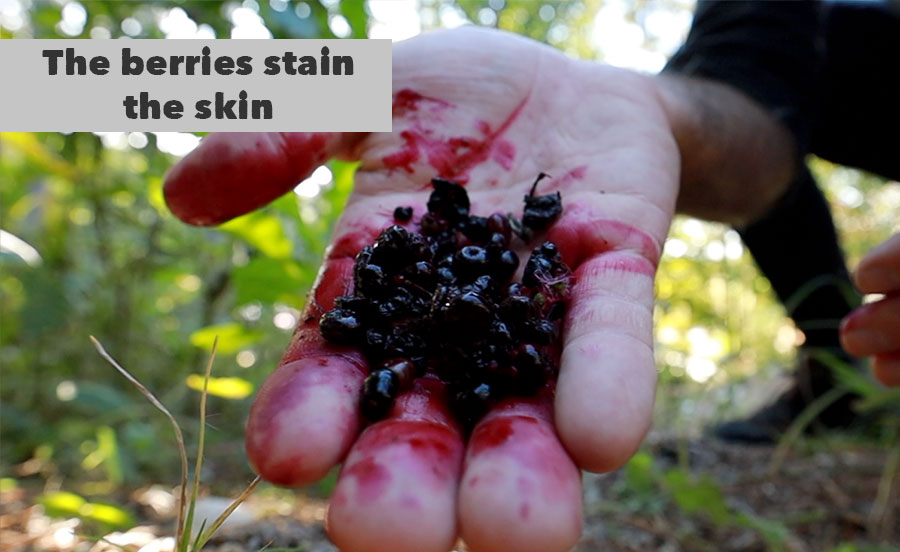Don’t Eat Pokeweed Until You’ve Seen This!
Pokeweed, or sometimes referred to simply as poke or poke salat, is a native plant to the eastern deciduous forests of the US. It is one of the most common causes for calls to poison control in part because the berries are mistaken for grapes. They are most definitely toxic and these toxins could kill you. Yet, pokeweed is also used in traditional southern dishes (poke salat), and people eat the individual ripe berries so as to treat a wide range of ailments.
I was quite confused by this dichotomy at first so I wanted to explore the history and chemistry a bit more. That lead to this video:
What I found talking to the experts here was that the poison is really dependent on how much you take. Many drugs are like this. Aspirin at small doses is totally ok, and in fact acts as an anti-inflamatory drug. But if you take a hundred pills, you’ll likely die from it.
The problem with pokeweed that makes it different from aspirin is that the plant contains over a thousand different chemicals. Many of these toxins are produced by the plant to keep herbivores from eating it (deer, caterpillars, etc). Clearly some of the toxins (like the saponins) are really bad for us. In the video I found that I’d only need ~5 mg of saponins to kill me. That’s about 1/6th the weight of a grain of sand. That’s not much.

The main question was, if you can get rid of the bad toxins, are there other chemicals that are beneficial to us in the plant? Maybe. People have eaten it for hundreds if not thousands of years. I’m still not convinced it’s worth the risk given there is almost no data on it. However, I’d love for someone to research it on humans a bit more. I think we could learn a lot from a few detailed studies.
Learn more:
- There is more info on Pokeweeds via StoneAgeMan here.
- The best information I got on it is from a scientific review paper that was impossible to find, so I’m linking a copy here.

Happy foraging everyone and remember to be safe with this plant.
































































































